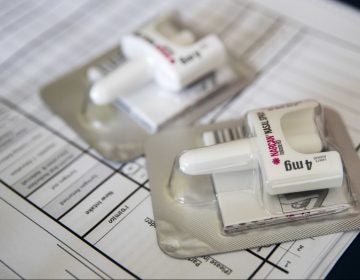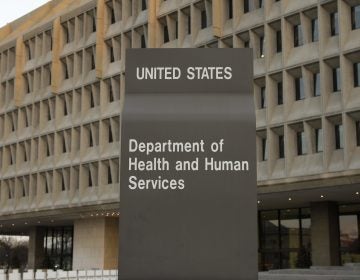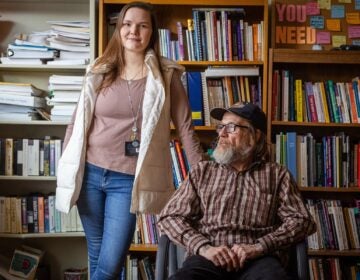A Philly mom’s message for families dealing with addiction during the holidays
Muriel Alston found a support group for parents of children with substance use disorder “solely by accident.” Now, she’s helping others navigate difficult holiday seasons.
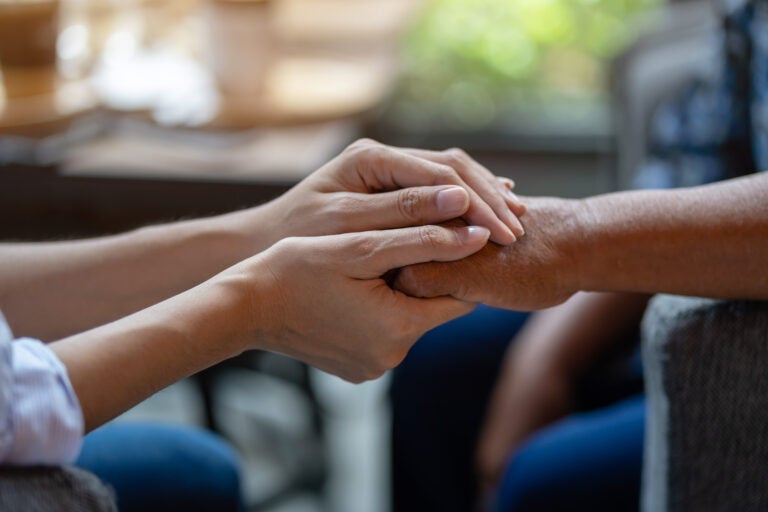
(Courtesy of Bigstock)
From Philly and the Pa. suburbs to South Jersey and Delaware, what would you like WHYY News to cover? Let us know!
It’s been too long since Muriel Alston enjoyed a festive, joyful holiday season with her family.
“This time of year is difficult,” she said.
The Philadelphia resident spends her time working as a life coach and minister with Victory Outreach Ministries in West Philadelphia.
In recent weeks, her daughter — who has struggled with substance use disorder since 2007 — was released from a 10-month stint in jail.
“She is sober at the moment, but she’s only been sober for a few days,” Alston said.
The cycle of opioid use and periods of sobriety has been going on for nearly a decade. And as the addiction deepened, it made Muriel’s daughter increasingly estranged from the family.
“The last Christmas that I spent with my daughter was probably 10 years ago,” she said. “The holiday itself is one of love and it’s one of family, and when you have that one person that is missing from the gatherings, from dinner, from the gift exchange, it leaves a hole.”
She says there is also a constant sense of anxiety and stress knowing that the next time her daughter uses drugs might be her last.
“You have all of these things plaguing your mind at the same time around Christmas,” she said. “You’re trying to celebrate while your heart is broken all at the same time.”
Wondering if she was alone with her struggles, Alston turned to a group that educates and supports parents of children with substance abuse disorder.
“Parents of Addicted Loved Ones” (PAL), an Arizona-based nonprofit, provides a support network for people like Alston. She found the resource “solely by accident,” but it’s brought much comfort to her life.
“The first meeting that I was included in, it’s like a light bulb went off in my head and I thought to myself, ‘Oh my God. I’m not crazy,’” she said. “I was trying to figure out how to deal with the feelings — the anger, the resentment, the disappointment and betrayal — all of those things that come into play in dealing with my daughter.”
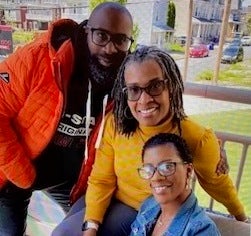
During the pandemic, she spoke with dozens of parents through Zoom who shared similar experiences.
“It’s like they were telling my story,” she said. “It affected me so much that I wanted to bring that to the East Coast.”
PAL was originally founded in 2006 as a small group of families seeking counseling and education for parents of adults struggling with addiction. The nonprofit, which began expanding throughout the Phoenix-metro area, grew nationwide, with roughly 190 groups.
Since 2018, Alston has been a group facilitator for the Philadelphia region, which primarily meets monthly via Zoom.
“I just want to give back and be a help to some other people, because we don’t know where to go or where to turn, so it’s a learning experience for me that I get to share with other people,” she said.
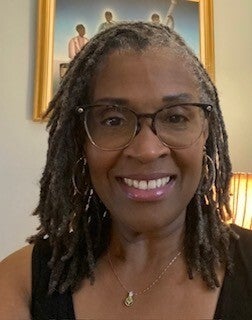
Her group includes parents across Delaware, New Jersey and Pennsylvania, with whom she counsels and moderates discussions.
“It is lesson-based,” she said. “We go through 12 lessons just like our kids would go through recovery, and it’s 12 lessons for us to learn how to have hope and to figure out how to live our lives in spite of their decisions.”
One thing that Alston stresses with parents is learning to establish boundaries — something that’s also recommended for harm reduction providers.
“I also come from a background with family members and substance use,” said Kristina Scalia-Jackson. Scalia-Jackson is the director of the Center of Excellence for Opiate Use Disorder at Pathways to Housing, Inc in North Philadelphia.
“I do see both perspectives, and I would say that it’s okay to have boundaries,” she said.
She said the holiday season, a time when providers see the most return toward active drug use, can be challenging.
“I think it’s related to those feelings of isolation and wishing that they were with their family,” she said. “I would just remind parents that they also miss you too. And they want to be there as much as you want them to be there.”
For harm reduction providers, navigating substance use disorder has become an increasingly tall task. In 2023, there was a surge of opioid overdose deaths, and Scalia-Jackson said that drugs are becoming progressively deadlier.
“There is a physiological response to these substances,” she said. “Ten years ago, someone could use in the morning to go to Christmas dinner and they would be fine all day, and the unfortunate reality of xylazine, which is the emerging substance in Philadelphia [and] throughout the nation, is that half-life — so that timeframe between substance use — can be as short as an hour.”
For many battling an addiction, the stigmatization of substance use can prevent individuals from seeking help and from being away from their families.
But for parents like Muriel Alston, Scalia-Jackson recommends keeping communication and options open for loved ones living with addiction.
“Maybe make some accommodations like, ‘Hey, you don’t have to come for Christmas dinner, but maybe pop in for dessert,’” she said. “‘We just want to see you for a little bit. Give us 20 minutes.’ Those kinds of compromises I think would be beneficial for the family.”
For Alston, she’s continuing to keep her door open. What’s helping her through most days is loving her daughter unconditionally, and she’s teaching others to do the same.
“No matter how much we love them, we can’t love them back to sobriety,” she said. “It’s a decision that they have to make on their own, and we have to be able to love them.”
If you or someone you know is struggling with substance use, SAMHSA’s National Helpline is a free, confidential, 24-hour hotline that offers referrals to local treatment facilities, support groups, and community-based organizations. Call 1-800-662-HELP for more information.
WHYY is your source for fact-based, in-depth journalism and information. As a nonprofit organization, we rely on financial support from readers like you. Please give today.


